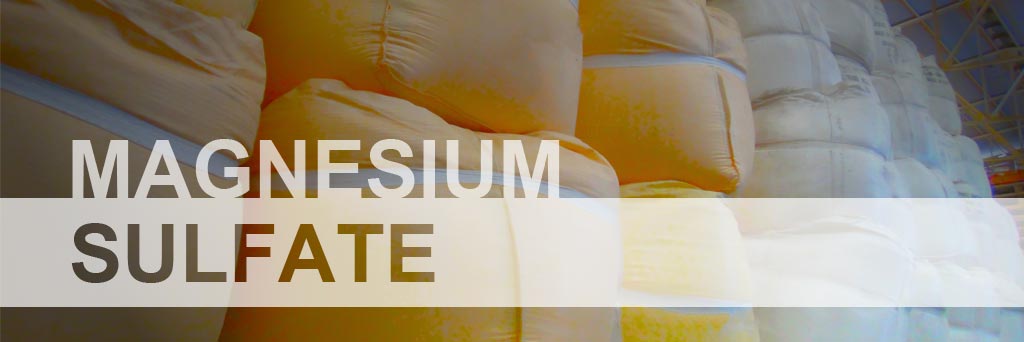Magnesium Sulfate (or magnesium sulphate) or epsom salt or is a chemical compound containing magnesium, sulfur and oxygen, with the formula MgSO4.
Anhydrous Magnesium Sulfate is used as a drying agent. Since the anhydrous form is hygroscopic (readily absorbs water from the air) and is therefore difficult to weigh accurately, the hydrate is often preferred when preparing solutions, for example in medical preparations. Magnesium Sulfate has been traditionally used as a component of bath salts.
In agriculture and gardening, Magnesium Sulfate is used to correct magnesium deficiency in soil, since magnesium is an essential element in the chlorophyll molecule. It is most commonly applied to potted plants, or to magnesium-hungry crops, such as potatoes, roses, tomatoes, peppers and cannabis. The advantage of Epsom Salt over other magnesium soil amendments (such as dolomitic lime) is its high solubility.
Magnesium Sulfate is used in bath salts, particularly in flotation therapy where high concentrations raise the bath water's specific gravity, effectively making the body more buoyant. This property is also used to restore some Lava lamps damaged by being shaken by exchanging the water and adding drops of a concentrated solution until sustainable buoyancy is reached. Traditionally, it is also used to prepare foot baths, intended to soothe sore feet. The reason for the inclusion of the salt is partially cosmetic: the increase in ionic strength prevents some of the temporary skin wrinkling ("pruning" – partial maceration) which is caused by prolonged immersion of extremities in pure water. However, magnesium sulfate can also be absorbed into the skin, reducing inflammation. It is also sometimes found in bottled mineral water, and accordingly is sometimes listed in the contents thereof. It may also be used as a coagulant for making tofu.
Magnesium Sulfate is also used to maintain the magnesium concentration in marine aquaria which contain large amounts of stony corals as it is slowly depleted in their calcification process. In a magnesium-deficient marine aquarium calcium and alkalinity concentrations are very difficult to control because not enough magnesium is present to stabilize these ions in the saltwater and prevent their spontaneous precipitation into calcium carbonate. |



